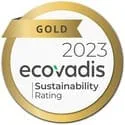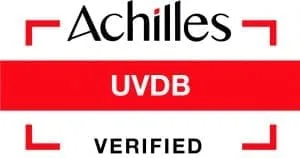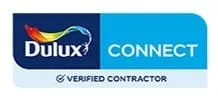Our leadership in health and safety management has also extended into the area of environmental best practice. Since achieving ISO 14001 status many years ago, we have continued to review our environmental impacts and adopt different ways to minimise our effect on the environment. This has meant evaluating our waste streams, our fleet, our office set ups and site-based activities.
We are engaging all our employees to think about what we can do differently and gain their support in achieving our aims. Training is playing a vital role in raising environmental awareness amongst colleagues and encouraging them to change and adopt practices which reduce our waste and carbon footprint, reuse materials and increase the amount we recycle.
Quite rightly our customers are demanding more from us and holding us accountable in our commitment to reducing our Scope 1, Scope 2 and Scope 3 emissions. And in turn, we are working with our supply chain to review changes in specification which can have positive environmental benefits in air quality, extend maintenance painting life cycles or reduce the overall environmental impact of maintenance painting works.
We will achieve this by:
- Recycling residual paint and solvents through social enterprises like Paint 360 and NIMTECH
- Recycling metal and plastic paint cans and containers
- Working with approved and vetted, specialist waste companies to minimise any site-based waste going to landfill
- Reducing carbon emissions and our carbon footprint by improving vehicle efficiency and journey planning using GPS/vehicle tracking technology
- Commissioning ecology and horticultural surveys when required to ensure local habitats won’t be negatively impacted by planned maintenance painting or minor civils work.
- Training all employees in environmental awareness and gaining their support and commitment to drive environmental improvements across the business.
- Being accountable through the online Sustainability School tool for our Scope 1,2 and 3 emissions, including waste management, utility usage, recycling volumes and many other key factors.
- Replacing our fleet of diesel vehicles with electric cars and vans
- Reviewing product purchases and choosing paint products with low VOC (volatile organic compound) levels, whilst improving air quality and extending maintenance painting cycles.
- Working with the local communities, charities and customers to reuse paint and resources through our Community Paintbrush Scheme and Community Repaint.
Our Accreditations
From safe systems of work to our environmental policies, our accreditations assure customers of our accountability and dependability in our work.
See All Accreditations







